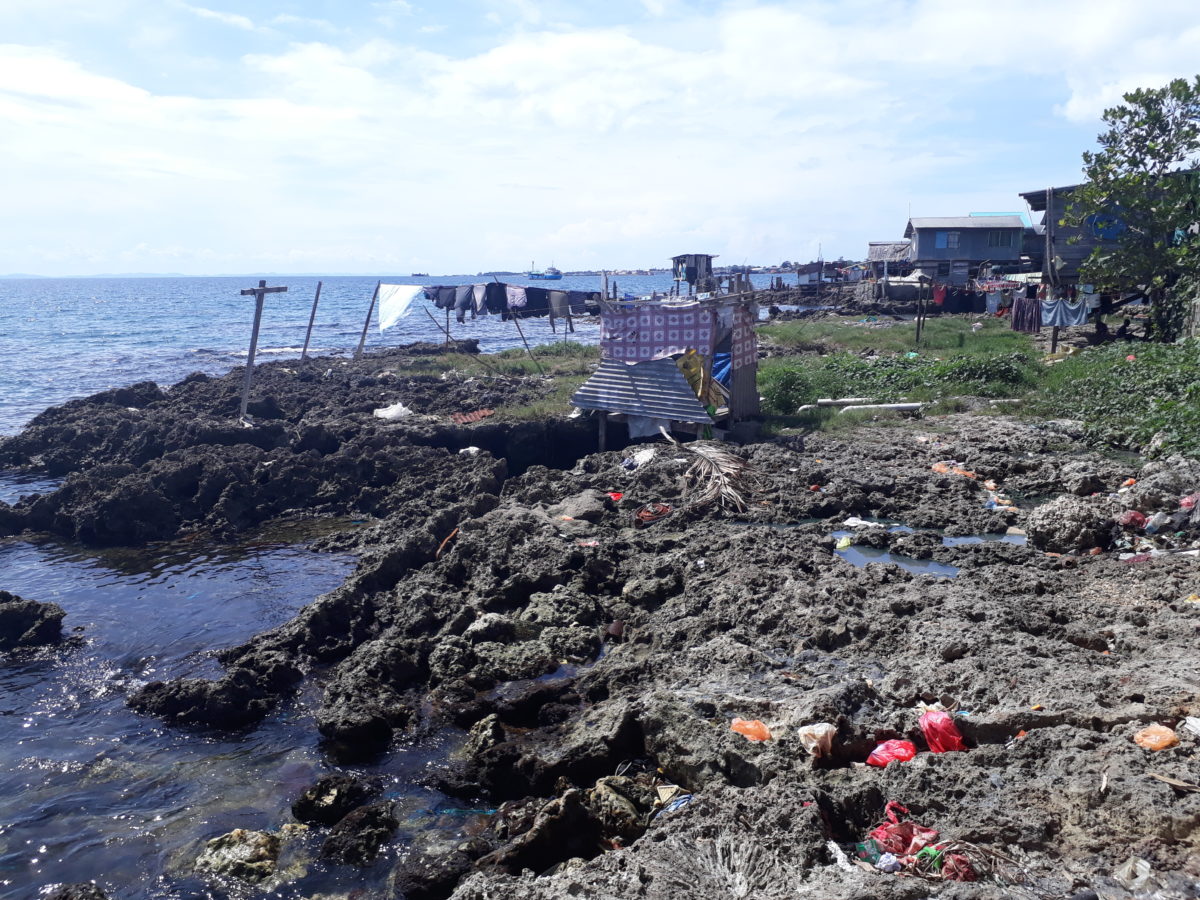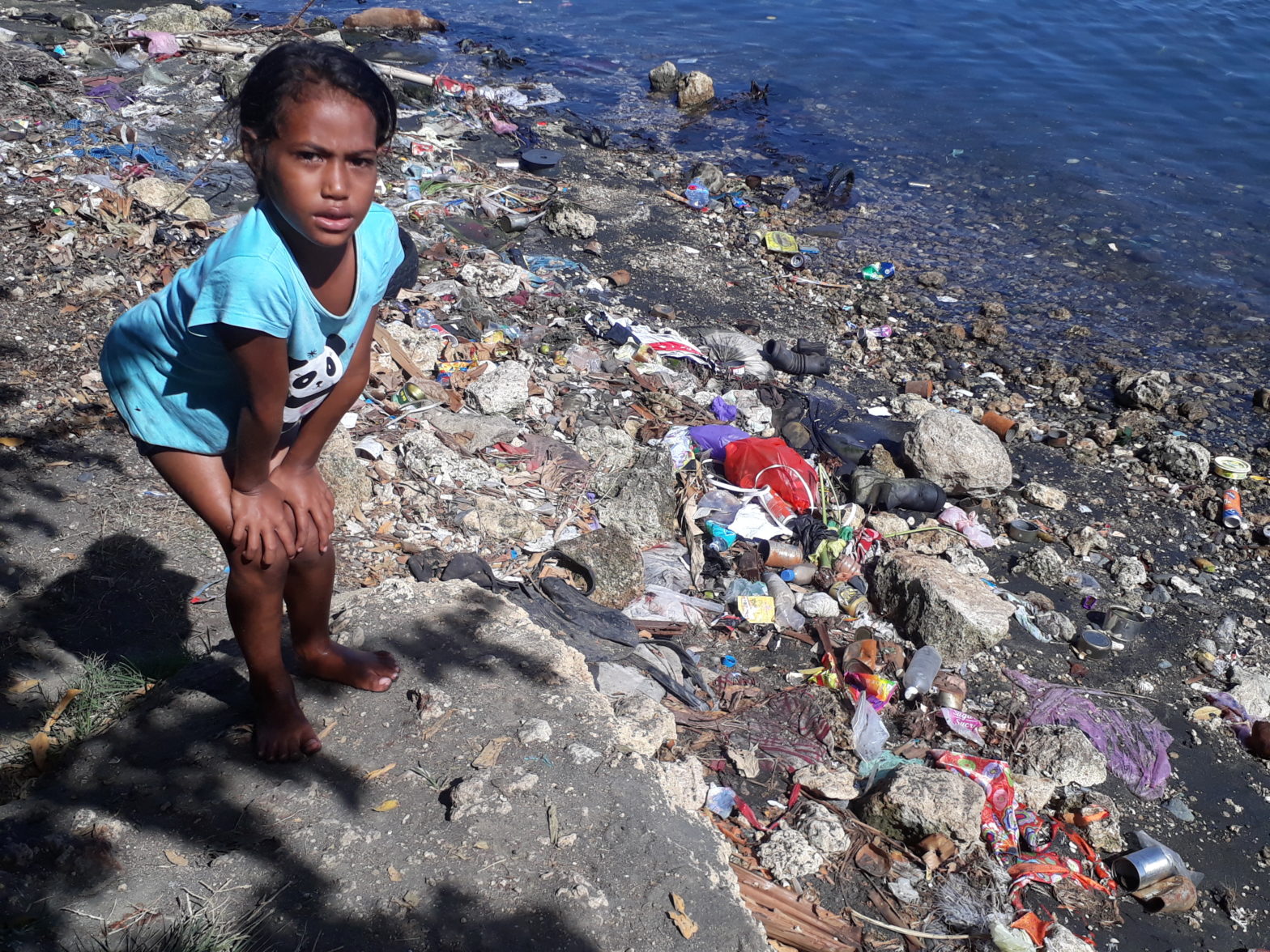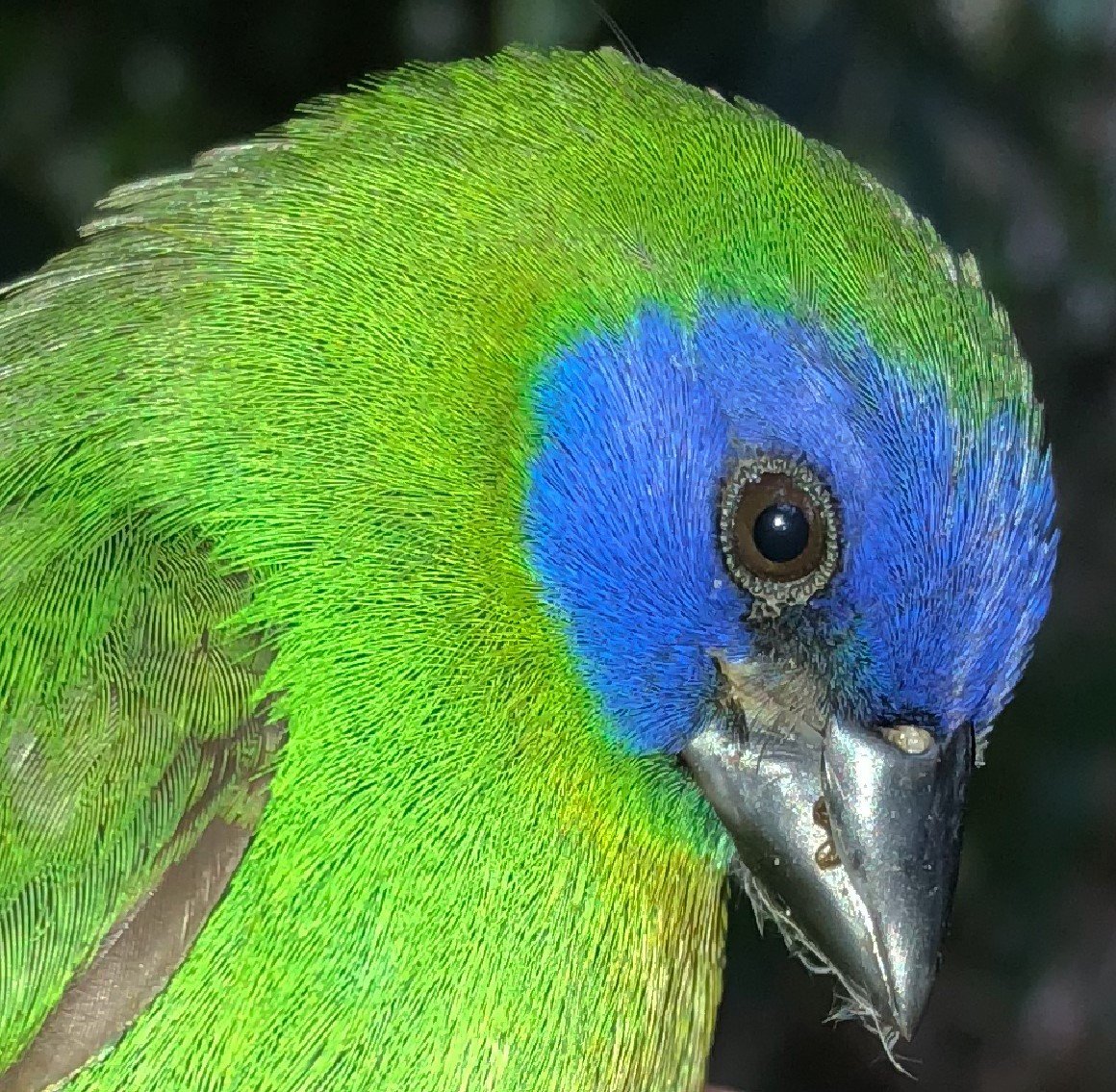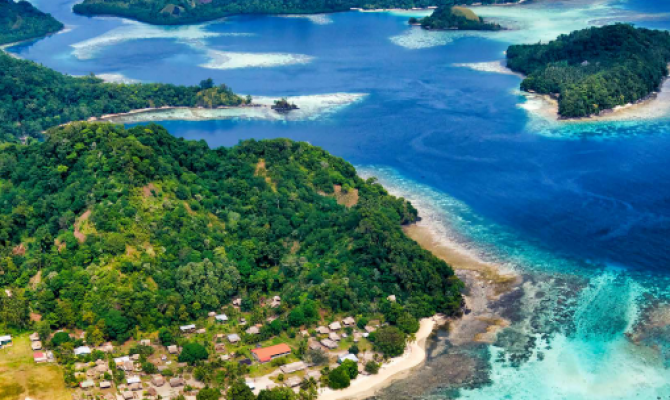Climate change has been a heavily debated global topic. For many people, climate change has become an ongoing battle for survival.
Kukum Fishing villagers in Honiara believe that climate change is real and that their surrounding environment is living proof.
A coastal plain situated along the Kukum Highway in Honiara, the village is one of four selected climate change hotspots in a 2014 climate change vulnerability assessment report on Honiara by the United Nations Development Programme (UNDP) and United Nations Human Settlements Programme (UN-Habitat).
The UNDP-UN Habitat’s 2014 report on Honiara states that the Fishing Village is exposed sea level rise as well as some flooding from the surface runoff from the hills while the coastline exhibits signs of coastal erosion from previous storm surges, wave action, and sea level rise.
In terms of food security, the report noted that one of the signi cant issues for residents of Kukum Fishing Village was the depletion of sh catch.
“Inadequate income from shing a ects their food security, since they are now more dependent on the market compared to be- fore. Sourcing food in a market system is challenging due to increasing prices,” it said.
Kukum Fishing Village chief Robert Satu said poverty is getting worse due to diminishing returns from the sea and the land.
Population increase was an added pressure. According to the UNDP-UN Habitat report, Kukum Fishing Village has a population of 463 — 227 men and 236 women with a density of 115 persons per hectare and an average household size of eight.
According to Satu, some households had more than 10 people living under one roof, in houses that are in a very poor state and can collapse at any time.
In addition, the city of Honiara is heavily influenced by a number of signicant regional weather and climate systems such as the South Pacific Convergence Zone, the EI Nino Southern Oscillation Index and the West Pacific Monsoon, according to the UNDP-UN Habitat report.
In addition to highly variable inter-annual rainfall, the island group is exposed to events such as tropical cyclones, drought, extreme rainfall and related fash flooding and landslides, the report stated.
The villagers are even more worried now due to predications of more frequent and more violent storms and cyclones as a result of climate change.
Mr Satu says that during the cyclone, homes by the seaside would are inundated with seawater.
While land is available for relocation, the people of Kukum Fishing Village prefer to live by the sea since fishing is a major activity, not just economic, but cultural and traditional.
“We had talks with the government and we got to know that vacant lands are available but the people do not want to move from here,” said Mr Satu.
“I believe it is important and necessary to move so that their lives and the future of of the children in these coastal areas are not ruiined.
“If the older ones take that step, many lives will be saved.”
According to Mr Satu, the opportunity to move to other parts of Honiara such as Isabell and Rushal Island should be considered seriously, but there is a powerful attachment to Kukum.
Land tenure
According to the UNDP-UN Habitat’s 2014 climate change vulnerability assessment report on Honiara, several activities with regards to climate change adaptation have been conducted in many rural and remote areas of Solomon Islands.
The UN-Habitat Solomon Islands consultant, Steven Likaveke, said the government had leased land titles for people living near the coastal areas, however, costs associated with moving or relocation was the main issue.
“Land is available and is leased for 75 years, but the cost of moving is very high. People do not have enough money to build new houses thus, they do not want to leave the coastal areas,” Mr Likaveke told Wansolwara.
The Project/Programme Proposal to the Adaptation Fund shows that informal settlement zones comprise almost 15 per cent of Honiara’s total land area. An estimated 28 per cent of the city’s population live in these settlements, including Kukum Fishing Village, Ontong Java Settlement, Matariu and Jericho. Together with the Solomon Islands Government, the UN Habitat team is working on relocating informal settlements that are at most risk of being displaced by climate change impacts.
This includes communities heavily affected by landslides and sea level rise after heavy rain.
“With our UN Habitat Assessment Project and the Solomons Government, we are en- gaged to move the most vulnerable people from informal settlements to a highland for a better life,” Mr Likaveke said.
Grassroots experience
For Vaevinah Lawrence, so much has changed around Honiara over the past 20 years.
A teacher at the Kukum Fishing Village preschool, Ms Lawrence said children were exposed to environmental conservation such as planting and practising safety measures during a disaster.
The school has as many as 30 children from surrounding communities and five staff members.
She said that during her childhood, they did not encounter sea level rise or landslides. These days, Ms Lawrence said, the demand for water was also high because of the hot weather.
“The walls are drying up. Most families here do not work, so they do not have enough money to buy and drink bottled water. The only thing left for them is to drink the sea water, which they also use it for other household purposes,” she said.
According to Ms Lawrence, natural disaster preparedness was part of their teaching program at the preschool.
She said they would engage children in activities such tsunami evacuation drills and precautionary measures during cyclones and earthquakes.
“Every time we experience bad weather, the waves would come over the seawall in front of the school. Children would be advised to stay home, not to go outside or come to school until the weather improved,” Ms Lawrence said.
She said communities were advised to listen to the radio for alerts from authorities.
This story was produced with the support of Internews’s Earth Journalism Network.




